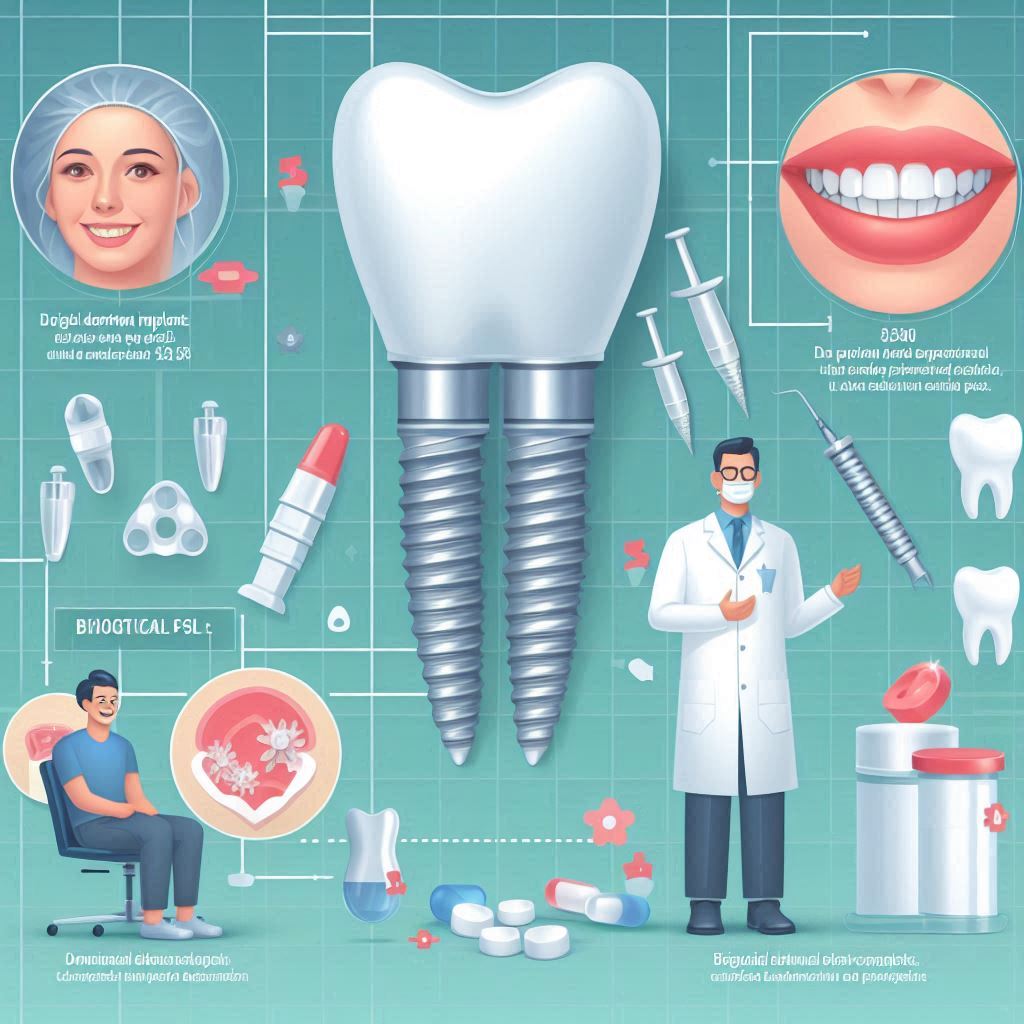Biological Dental Implant Cost: A Comprehensive Guide
Dental implants have revolutionized modern dentistry, offering a permanent solution for missing teeth. However, traditional titanium implants, while effective, may not be suitable for everyone due to potential allergic reactions or biocompatibility issues. Enter biological dental implants—a cutting-edge alternative designed to integrate seamlessly with the body’s natural tissues.
But how much do biological dental implants cost? This guide dives deep into the pricing, benefits, risks, and key considerations to help you make an informed decision. Whether you’re exploring options for a single tooth or full-mouth restoration, understanding the financial and biological aspects is crucial.

2. What Are Biological Dental Implants?
Biological dental implants, also known as biocompatible implants, are made from materials that mimic natural tooth structure, such as:
- Zirconia (Ceramic Implants) – Metal-free, hypoallergenic, and aesthetically superior.
- Polymer-Based Implants – Resorbable and compatible with soft tissues.
- Bioactive Coatings – Enhance osseointegration (bone fusion).
Unlike titanium, these materials reduce the risk of inflammation, corrosion, and gum recession, making them ideal for patients with autoimmune conditions or metal sensitivities.
3. How Do Biological Implants Differ from Traditional Implants?
| Feature | Biological Implants | Traditional Titanium Implants |
|---|---|---|
| Material | Zirconia, polymer, bioactive | Titanium alloy |
| Biocompatibility | High (less rejection risk) | Moderate (may cause reactions) |
| Aesthetics | More natural-looking | Visible metal in some cases |
| Cost | Generally higher | More affordable |
| Durability | Comparable to titanium | Long-lasting |
Biological implants are often preferred for their biomimetic properties, but they come at a premium price.
4. Benefits of Biological Dental Implants
✅ Hypoallergenic – No metal, reducing allergic risks.
✅ Aesthetically Superior – Blends naturally with teeth.
✅ Better Gum Compatibility – Less risk of recession.
✅ No Corrosion – Unlike metal implants.
✅ Improved Osseointegration – Bioactive materials enhance bone bonding.
5. Factors Affecting the Cost of Biological Dental Implants
The price varies based on:
- Material Used (Zirconia is more expensive than polymer).
- Number of Implants Needed (Single tooth vs. full arch).
- Dentist’s Expertise (Specialists charge more).
- Geographical Location (US, Europe, and Australia have higher costs).
- Additional Procedures (Bone grafting, sinus lifts).
Average Cost Breakdown (2024)
| Country | Single Implant (USD) | Full Mouth (USD) |
|---|---|---|
| USA | $3,000 – $6,000 | $20,000 – $50,000 |
| UK | £2,000 – £4,500 | £15,000 – £40,000 |
| Germany | €2,500 – €5,000 | €18,000 – €45,000 |
| India | $1,200 – $3,000 | $8,000 – $25,000 |
6. Insurance Coverage & Financing Options
Most insurance plans classify biological implants as cosmetic or elective, offering limited coverage. However, some flexible spending accounts (FSAs) or dental loans can help.
7. Choosing the Right Dentist for Biological Implants
- Look for certified biological dentists.
- Check before-and-after cases.
- Read patient reviews.
- Ask about warranties.
8. Potential Risks & Complications
- Higher upfront cost
- Limited long-term studies (compared to titanium)
- Fewer specialists available
9. Longevity & Maintenance
With proper care, biological implants last 15-25+ years. Maintenance includes:
- Regular dental check-ups.
- Avoiding excessive force (e.g., teeth grinding).
- Good oral hygiene.
10. Conclusion
Biological dental implants offer a metal-free, biocompatible alternative to traditional implants, with superior aesthetics and gum health benefits. However, they come at a higher cost, ranging from $3,000 to $6,000 per tooth, depending on materials and location. Patients should weigh the pros and cons, consult a certified biological dentist, and explore financing options before committing.
11. FAQs
Q1: Are biological implants better than titanium?
A: They are better for patients with metal allergies and offer superior aesthetics, but titanium remains the gold standard for durability.
Q2: Does insurance cover biological implants?
A: Rarely, as they are often considered elective. Check with your provider.
Q3: How long do zirconia implants last?
A: With proper care, they can last 20+ years, similar to titanium.
Q4: Can smokers get biological implants?
A: Smoking increases failure risk, but some dentists may approve if the patient quits.
Q5: Are there any age restrictions?
A: Patients must have fully developed jawbones, typically 18+ years old.


